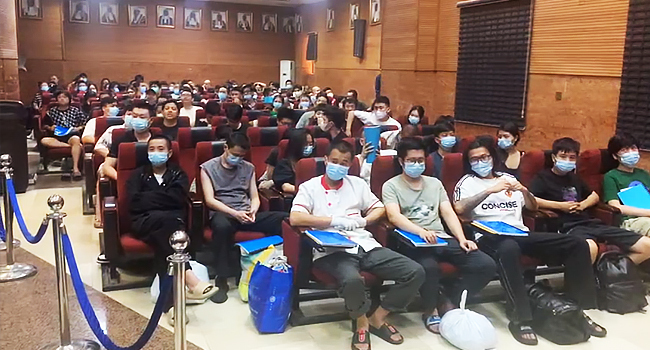Headlines
Court Remands Foreigners in Prison as Cybercrime Arraignment is Stalled

The arraignment of foreigners accused of cybercrime faces delays, prompting the court to order their remand in prison pending further proceedings.
Justice Ekerete Akpan of the Federal High Court in Abuja has mandated that 109 foreign nationals, allegedly involved in high-level cybercrimes, hacking activities, and threats to national security, be detained at Kuje and Suleja correctional facilities until the next court date.
Justice Akpan issued the order following a request from the defendants’ counsel, who argued that the police facility housing them was not suitable for accommodating such a large number of suspects.
The suspects’ arraignment was also delayed due to inaccuracies in the representation of their names on the charge sheet and complications with legal counsel representation.
Ogwu Onoja, the counsel for several defendants, informed the court of the necessity to have interpreters available during proceedings for individuals who do not comprehend spoken English.
Eric Oba, the attorney representing the Brazilian defendants, requested that his clients be separated from the other defendants. However, the court denied this request, highlighting that arraignment had not yet taken place.
After hearing the lawyers’ arguments in the lawsuit, the trial judge postponed proceedings until November 29 for arraignment.
Before the most recent delay, the arraignment was also postponed on the previously scheduled date because the suspects were not represented in court.
READ ALSO: EFCC Nabs 15 Alleged Yahoo Boys in Benin Cybercrime Bust
Justice Ekerete Akpan adjourned the case to allow the defendants time to obtain a lawyer and ensure that their legal representatives are adequately informed about the matter.
The group facing a six-count charge related to cybercrime consists of 113 foreign nationals—87 men and 26 women—from countries such as China, Vietnam, Thailand, Indonesia, Brazil, the Philippines, and Malaysia. Additionally included are 17 Nigerian collaborators.
The suspects were apprehended on November 3, 2024, following a strategic operation that involved a coordinated raid in the Jahi area of Abuja. During the raid, it was alleged that they were utilizing computers and other advanced devices to engage in criminal activities.
The charge indicated that the suspects entered Nigeria on a business permit valid for 30 days and did not leave when their permit expired. They remained in the country without obtaining either a valid resident permit or an appropriate visa, violating section 4 (2) of the Immigration Act 2015, which is punishable under section 44 (1) (c).
Another charge indicated that the suspects, under this Honourable Court’s jurisdiction, intentionally promoted a fraudulent and unregistered gambling platform via electronic messages on the internet to deceive others. This involved materially misrepresenting facts about the said platform, causing significant economic losses for individuals in Nigeria and abroad. Such actions constitute an offence contrary to and punishable under Section 14 (2) of the Cybercrimes (Prohibition, Prevention, Etc.) Act of 2015 (as amended in 2024).
